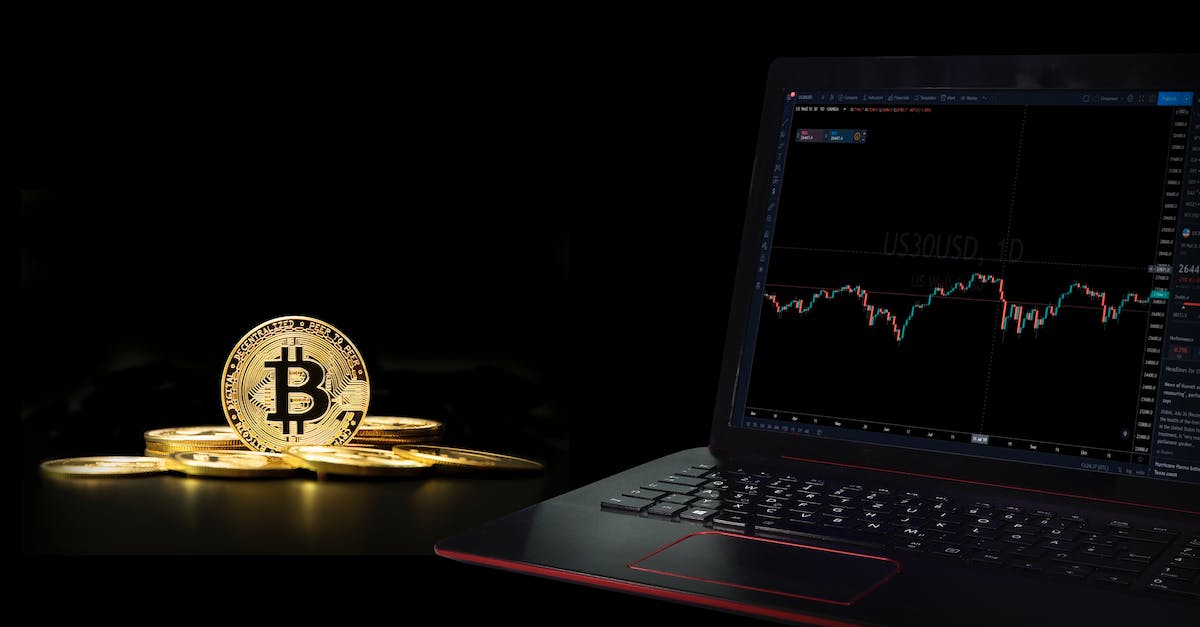Welcome to the future of cryptocurrency trading! In 2024, decentralized exchanges are set to revolutionize the way we buy and sell digital assets. With their innovative technology and decentralized nature, these exchanges offer a level of security and control that traditional centralized exchanges simply cannot match.
Imagine a world where you no longer have to trust a single entity with your funds. Decentralized exchanges empower you to trade directly from your own wallet, eliminating the need for intermediaries and reducing the risk of hacks or theft. This new era of trading is not only more secure, but it also promotes transparency and fosters a truly peer-to-peer trading environment.
What are Decentralized Exchanges?
Decentralized exchanges, often referred to as DEXs, are a crucial component of the ever-evolving cryptocurrency landscape. Unlike traditional centralized exchanges, DEXs operate on a peer-to-peer network without the need for intermediaries such as banks or brokers. This fundamental difference profoundly impacts the way cryptocurrency trading is conducted.
In a decentralized exchange, the control and ownership of funds and assets reside in the hands of the traders themselves. This means that you have full control over your assets without having to trust a third party to hold or manage them. By removing the need for intermediaries, DEXs eliminate the inherent risks associated with centralized exchanges, such as hacks, thefts, or mismanagement.
One of the key features of decentralized exchanges is their emphasis on security and privacy. Transactions on DEXs are executed directly between buyers and sellers, without the need to deposit funds into a centralized platform. This reduces the risk of your funds being vulnerable to hacking attempts or insider threats. Additionally, DEXs often implement encryption and blockchain technology to ensure the integrity of trades and safeguard your privacy.
Another compelling advantage of decentralized exchanges is the elimination of geographical restrictions and the ability to trade with anyone around the world. Traditional exchanges often have limitations in terms of which countries they serve, which can be a barrier for individuals who want to participate in the global cryptocurrency market.
Decentralized exchanges revolutionize the way cryptocurrency trading is conducted by putting the power back into the hands of the traders. They offer greater control, security, and privacy, while also promoting transparency and removing geographical barriers. With the ever-increasing popularity of decentralized finance (DeFi) and the continuous development of blockchain technology, decentralized exchanges are expected to play a significant role in shaping the future of cryptocurrency trading. So, if you’re looking to trade cryptocurrencies in a secure and transparent manner, exploring decentralized exchanges could be the right move for you.
Benefits of Decentralized Exchanges
When it comes to cryptocurrency trading, decentralized exchanges (DEXs) offer a wide range of benefits that have the potential to revolutionize the landscape. Here are a few key advantages of using DEXs:
- Enhanced Security: One of the most significant benefits of DEXs is the enhanced security they provide. Unlike centralized exchanges, DEXs operate on a peer-to-peer network without intermediaries. This means that you have full control over your funds and assets at all times. With no centralized server to hack, DEXs eliminate the risks associated with thefts and hacks that are prevalent in centralized exchanges.
- Privacy and Anonymity: DEXs prioritize privacy and anonymity. They use encryption and blockchain technology to ensure that your transactions are secure and anonymous. As a result, your personal information and trading activities are kept confidential, protecting you from potential data breaches and scams.
- No Geographical Restrictions: Traditional exchanges often impose geographical restrictions, limiting access to certain markets. DEXs, on the other hand, remove these limitations. With a DEX, you can trade cryptocurrencies with individuals from all over the world. This global reach opens up new opportunities and allows you to participate in the global cryptocurrency market, regardless of your location.
- No Intermediaries: DEXs eliminate the need for intermediaries in the trading process. By operating on a peer-to-peer network, you can trade directly with other individuals without the involvement of third parties. This not only reduces transaction costs but also speeds up the trading process, making it more efficient.
- Transparency: Transparency is a crucial aspect of cryptocurrency trading, and DEXs deliver on this front as well. The use of blockchain technology means that all transactions on DEXs are recorded and stored on a public ledger. This provides transparency and allows you to verify transactions independently.
These are just a few of the many benefits that decentralized exchanges offer. As the cryptocurrency landscape continues to evolve, DEXs are expected to play a significant role in shaping the future of cryptocurrency trading. With their enhanced security, privacy, global accessibility, and transparency, exploring decentralized exchanges can lead to secure and transparent trading experiences.
How do Decentralized Exchanges Work?
Decentralized exchanges (DEXs) operate on a peer-to-peer network, allowing users to trade cryptocurrencies directly with each other. Unlike centralized exchanges, which rely on a middleman to facilitate trades, DEXs remove the need for intermediaries, providing a more secure and efficient trading experience.
When you participate in a trade on a DEX, your order is matched with another user’s order through a smart contract, which is a self-executing contract stored on the blockchain. This smart contract ensures that the transaction is completed once the predetermined conditions of the trade are met. By eliminating intermediaries, DEXs minimize the risk of hacking, manipulation, or theft associated with centralized exchanges.
On a DEX, you retain control of your funds throughout the trading process. Instead of depositing your assets onto the exchange, you connect your personal wallet to the DEX using your private keys, which enables you to directly trade from your wallet. This provides enhanced security as you are not entrusting your funds to a centralized authority.
To ensure privacy and anonymity, DEXs utilize encryption techniques and blockchain technology. Encryption ensures that your personal and transactional information remains confidential. Additionally, all transactions conducted on DEXs are recorded on a public ledger, accessible to anyone. This level of transparency ensures the integrity of the trading process.
DEXs also offer greater accessibility to the global cryptocurrency market. Without geographical restrictions, you can trade with users from around the world, providing a wider range of trading opportunities.
Overall, DEXs offer a secure, private, and efficient way to trade cryptocurrencies. By leveraging blockchain technology and removing the need for intermediaries, they empower you to have full control over your assets and participate in the cryptocurrency market with confidence.
The Rise of Decentralized Exchanges
Decentralized exchanges (DEXs) have been gaining significant traction in the cryptocurrency trading landscape. With their ability to provide a more secure, private, and efficient trading experience, DEXs have emerged as a viable alternative to centralized exchanges. As we look to the future, it’s evident that DEXs are poised for even greater success in 2024.
Enhanced Security and Privacy
One of the key driving factors behind the rise of DEXs is the emphasis on security. Unlike centralized exchanges, DEXs operate on a peer-to-peer network, allowing users to trade cryptocurrencies directly without relying on intermediaries. This eliminates the need to entrust funds to a centralized platform, significantly reducing the risk of hacks, theft, or loss due to vulnerabilities in exchange infrastructure.
Moreover, privacy is a top priority for many cryptocurrency traders. DEXs employ encryption and blockchain technology, ensuring that user transactions are secure and anonymous. By connecting personal wallets to the DEX using private keys, you retain full control over your funds throughout the trading process. This enhanced level of control and privacy is a major draw for traders looking to protect their assets.
Increased Accessibility to Global Markets
Another key advantage of DEXs is their ability to remove geographical limitations. Traditional centralized exchanges often have restrictions on who can access and trade on their platforms. This can be particularly challenging for individuals residing in countries with limited access to financial services. DEXs, on the other hand, allow anyone with an internet connection to participate in cryptocurrency trading, fostering greater inclusivity and democratizing access to the global market.
Furthermore, DEXs enable the seamless trading of various cryptocurrencies, opening up new opportunities for diversification. Traders can easily access a wide range of digital assets and explore different investment strategies without the limitations imposed by traditional exchanges.
Innovation and DeFi Integration
In recent years, the rise of Decentralized Finance (DeFi) has further propelled the growth of DEXs. The integration of decentralized lending, borrowing, and yield farming protocols into DEXs has created a vibrant ecosystem of financial products and services. This integration has not only expanded the functionalities of DEXs but also attracted a broader user base interested in taking advantage of these innovative DeFi offerings.
Challenges and Future of Decentralized Exchanges
While decentralized exchanges (DEXs) have proven to be a game-changer in the cryptocurrency trading landscape, they are not without their challenges. Understanding these obstacles is crucial for the future development and widespread adoption of DEXs. Here are some challenges that DEXs currently face and the potential ways they can overcome them:
- Liquidity: One of the main challenges faced by DEXs is liquidity. Compared to centralized exchanges, DEXs often have lower trading volumes and fewer participants. This can result in issues such as slippage and higher costs. To tackle this challenge, there is a need to attract more liquidity providers and market makers to DEX platforms. Incentives like staking and yield farming can be implemented to encourage users to provide liquidity.
- User Experience: Another hurdle for DEXs is the user experience. While traditional exchanges offer intuitive and user-friendly interfaces, DEXs can sometimes be overwhelming for newcomers. Improving the user experience by simplifying the trading process and enhancing the interface can make DEXs more accessible and appealing to a wider audience.
- Regulatory Uncertainty: Regulatory uncertainty is a significant challenge for DEXs. As governments around the world continue to develop cryptocurrency regulations, DEXs need to find ways to comply with these laws while maintaining their decentralized nature. Collaborating with regulatory bodies, implementing know-your-customer (KYC) and anti-money laundering (AML) measures, and ensuring transparency can help address these concerns.
- Interoperability: Interoperability is crucial for the future of decentralized exchanges. Currently, most DEXs operate on different blockchain networks, limiting the trading options available. Cross-chain solutions like atomic swaps and bridges can enable seamless trading across different blockchains, improving liquidity and expanding the range of tradable assets.
- Scalability: Scalability is a constant challenge for DEXs, especially during periods of high market volatility. As transaction volumes increase, blockchain networks can become congested, leading to slower transactions and higher fees. Adopting layer 2 solutions, such as sidechains and state channels, can alleviate scalability issues and improve the overall user experience.
Conclusion
In the rapidly evolving landscape of decentralized exchanges (DEXs), overcoming challenges is crucial for their success. Liquidity, user experience, regulatory uncertainty, interoperability, and scalability are the key hurdles that DEXs must address.
To tackle the liquidity challenge, DEXs can incentivize liquidity providers and market makers through staking and yield farming programs. By attracting more participants, DEXs can increase trading volumes and enhance liquidity.
Improving the user experience is essential for attracting new users to DEXs. Simplifying the trading process and enhancing the interface can make DEXs more accessible and user-friendly.
Regulatory uncertainty poses a significant challenge for DEXs. Finding ways to comply with regulations while preserving the decentralized nature of DEXs is crucial for their long-term sustainability.
Interoperability is vital for the future of DEXs. Cross-chain solutions like atomic swaps and bridges enable seamless trading across different blockchains, enhancing the overall functionality and usability of DEXs.
Scalability is another challenge that DEXs must overcome. Adopting layer 2 solutions can alleviate scalability issues, allowing DEXs to handle a higher volume of transactions efficiently.
By addressing these challenges, DEXs can unlock their full potential and revolutionize the way we trade digital assets. Embracing innovation and continuously improving will be key to the success of DEXs in the coming years.
Frequently Asked Questions
Q: What are the challenges faced by decentralized exchanges?
A: Challenges commonly faced by decentralized exchanges (DEXs) include liquidity, user experience, regulatory uncertainty, interoperability, and scalability.
Q: How can DEXs address liquidity challenges?
A: To address liquidity challenges, DEXs can attract more liquidity providers and market makers through incentives such as staking and yield farming.
Q: What can be done to improve the user experience on DEXs?
A: To enhance the user experience on DEXs, it is recommended to improve the interface and simplify the trading process to make it more accessible for newcomers.
Q: How can DEXs comply with regulations while maintaining decentralization?
A: DEXs need to find ways to comply with regulations while preserving their decentralized nature. This can be achieved by working towards regulatory compliance and implementing self-regulation measures.
Q: How can DEXs enable seamless trading across different blockchains?
A: Interoperability is crucial for DEXs, and cross-chain solutions like atomic swaps and bridges can facilitate seamless trading across different blockchains.
Q: What solutions can alleviate scalability issues for DEXs?
A: To alleviate scalability issues, DEXs can adopt layer 2 solutions, which can enhance transaction throughput and reduce costs while maintaining security and decentralization.








